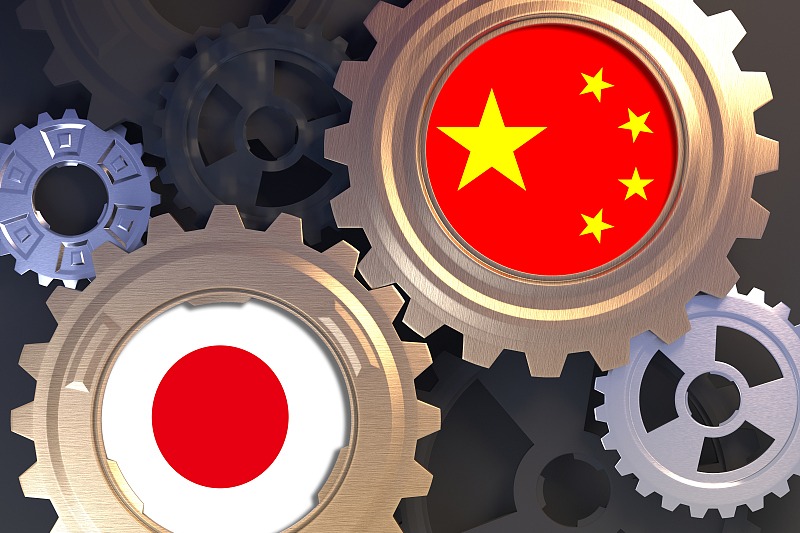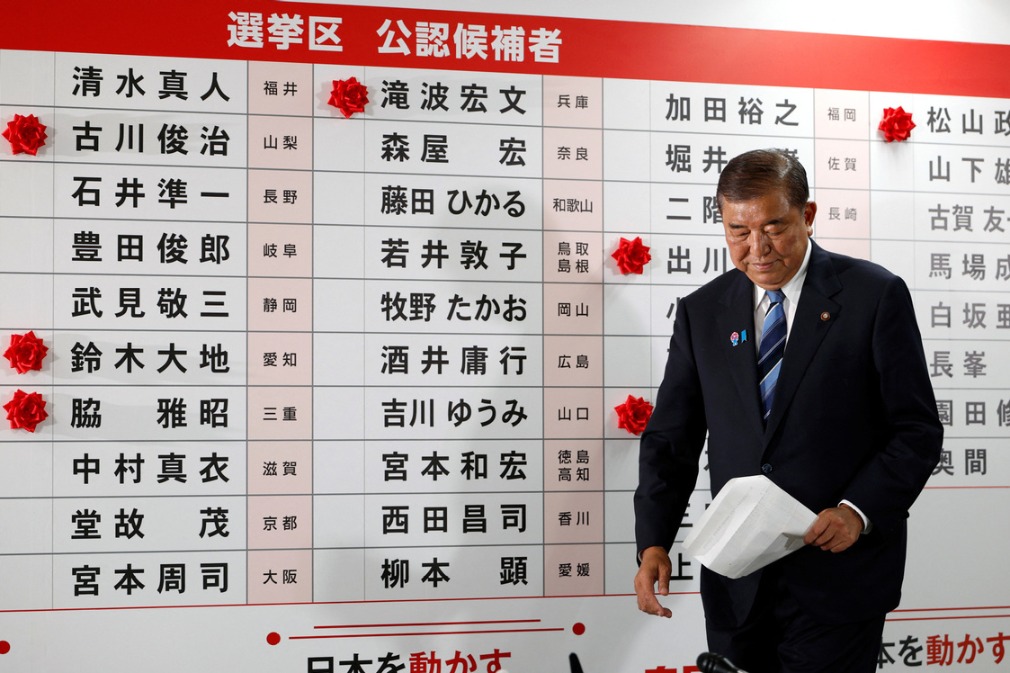Unstable political landscape seen in Japan amid election
Landscape: PM intends to remain in office despite defeat


Japan's political landscape is expected to become increasingly unstable following the ruling coalition's defeat in Sunday's House of Councillors election, experts said.
The Liberal Democratic Party and its coalition partner Komeito failed to secure the 50 seats needed to maintain a majority in the upper house. This leaves Prime Minister Shigeru Ishiba without control in either chamber of the National Diet and places his administration in a precarious position, the first time of losing such a majority since the LDP was established in 1955.
According to the final tally released on Monday morning, the LDP secured only 39 of the contested seats, while Komeito won eight. Even when combined with their uncontested seats, the two parties were unable to meet the 125-seat threshold required for a majority in the 248-member upper house.
Noriyuki Kawamura, a professor emeritus at Nagoya University of Foreign Studies, pointed out that the political focus in Japan is now likely to shift to whether Ishiba will step down, whether the LDP will continue as a minority government, or whether it will seek cooperation with opposition parties.
Despite his intention to remain as prime minister, calls from within the LDP for Ishiba to resign may grow, Kawamura said.
"Currently, the ruling coalition lacks a majority in both houses. Although there is no clear successor, should calls to oust Ishiba intensify, political turmoil in Japan will be difficult to avoid," he added.
At a news conference on Monday afternoon, Ishiba apologized for the LDP's poor showing but stated that he intends to remain in office. He said he had met with the Komeito leader earlier and reaffirmed their commitment to the coalition.
Regarding speculation about broadening the ruling coalition, Ishiba said: "At present, we have no intention of expanding the coalition framework. We hope to engage in sincere dialogue with anyone capable of responsibly crafting sound policies."
He emphasized that Japan is currently facing urgent challenges including United States tariffs and rising domestic prices, saying, "What matters most now is to ensure that politics does not stall."
The main opposition Constitutional Democratic Party of Japan, led by Yoshihiko Noda, has ruled out forming a coalition government with the LDP and Komeito. Meanwhile, Yuichiro Tamaki, leader of the Democratic Party for the People, has rejected joining the Ishiba administration.
Yoshimura Hirofumi of the Japan Innovation Party and Sohei Kamiya of Sanseito also ruled out forming a coalition, but said they are open to policy-based cooperation.
Kawamura noted that Japan-US negotiations on tariff issues remain unresolved. With Ishiba's administration weakened by the loss of a legislative majority, Japan's bargaining power has diminished.
"Should US President Donald Trump detect the vulnerability of the Ishiba Cabinet, he may press for a 25 percent tariff or demand an increase in agricultural imports. Key Japanese industries such as automobiles and agriculture could suffer significant setbacks," Kawamura warned.
Ukeru Magosaki, director of the East Asian Community Institute and a former senior official at Japan's Ministry of Foreign Affairs, said that although the election results may not directly affect foreign policy, the imposition of "Trump tariffs" is eroding a long-standing belief in Japanese society that close ties with the US automatically ensure economic prosperity and national security.
"Japan's foreign policy has long been anchored on the principle of prioritizing the US-Japan alliance," he said. "Now that foundation is being shaken. We can expect Japan's diplomatic trajectory to become more uncertain, with prolonged instability ahead."
Amid public dissatisfaction, emerging political forces capitalized on voter frustration. The center-right Democratic Party for the People and the populist Sanseito party both made significant gains.
The Constitutional Democratic Party secured 22 seats, the center-right Democratic Party for the People won 17, and Sanseito, which campaigned on a "Japanese First" platform but has far-right policies reminiscent of the pre-World War II era, captured 14 seats.

































